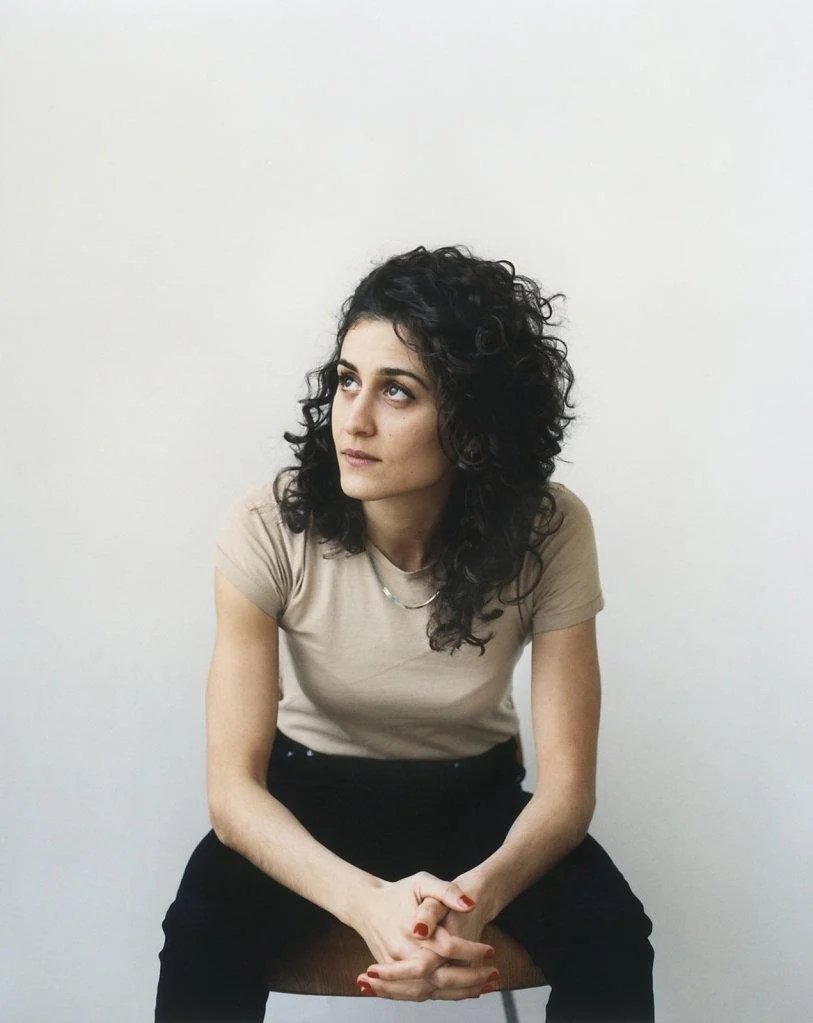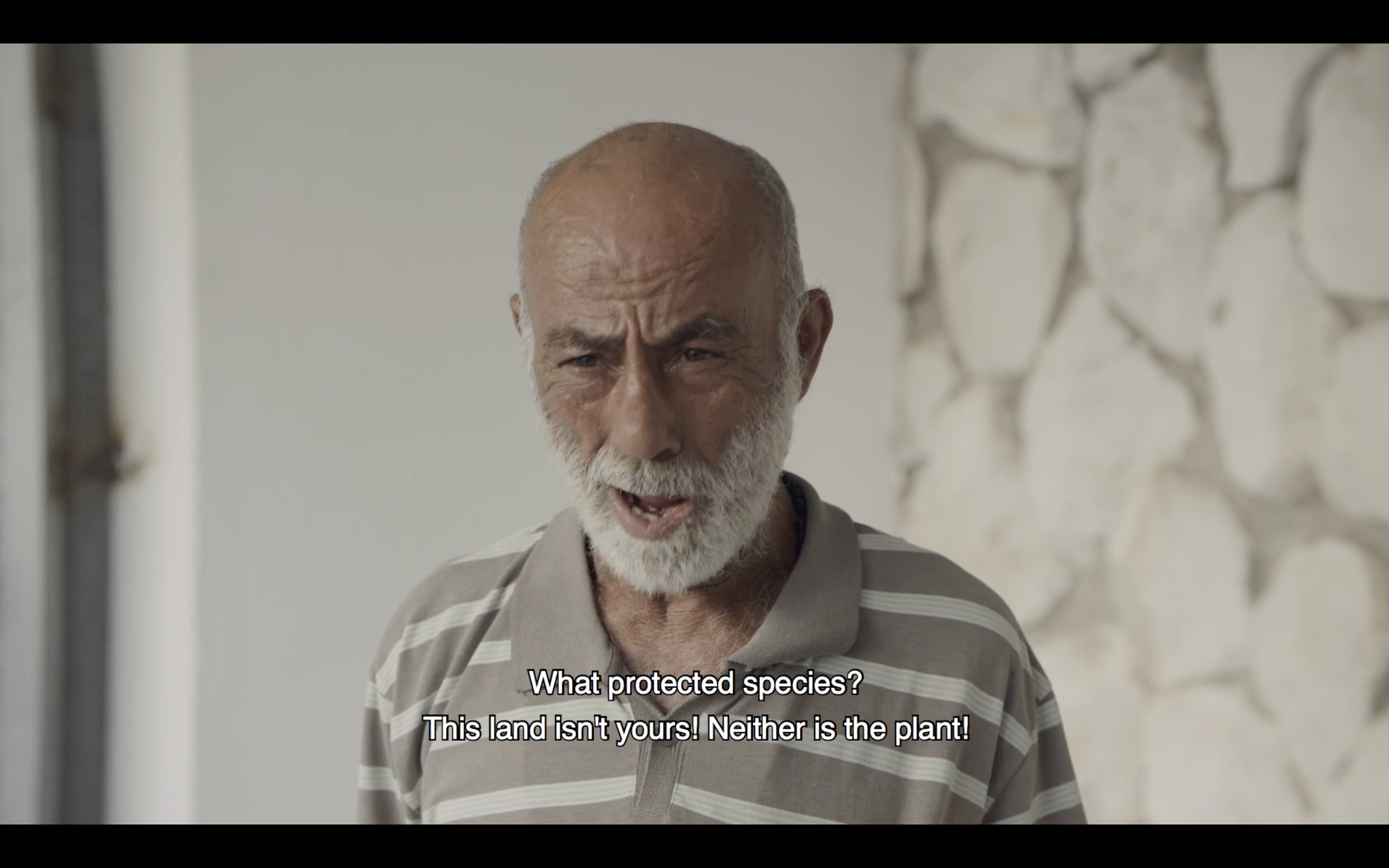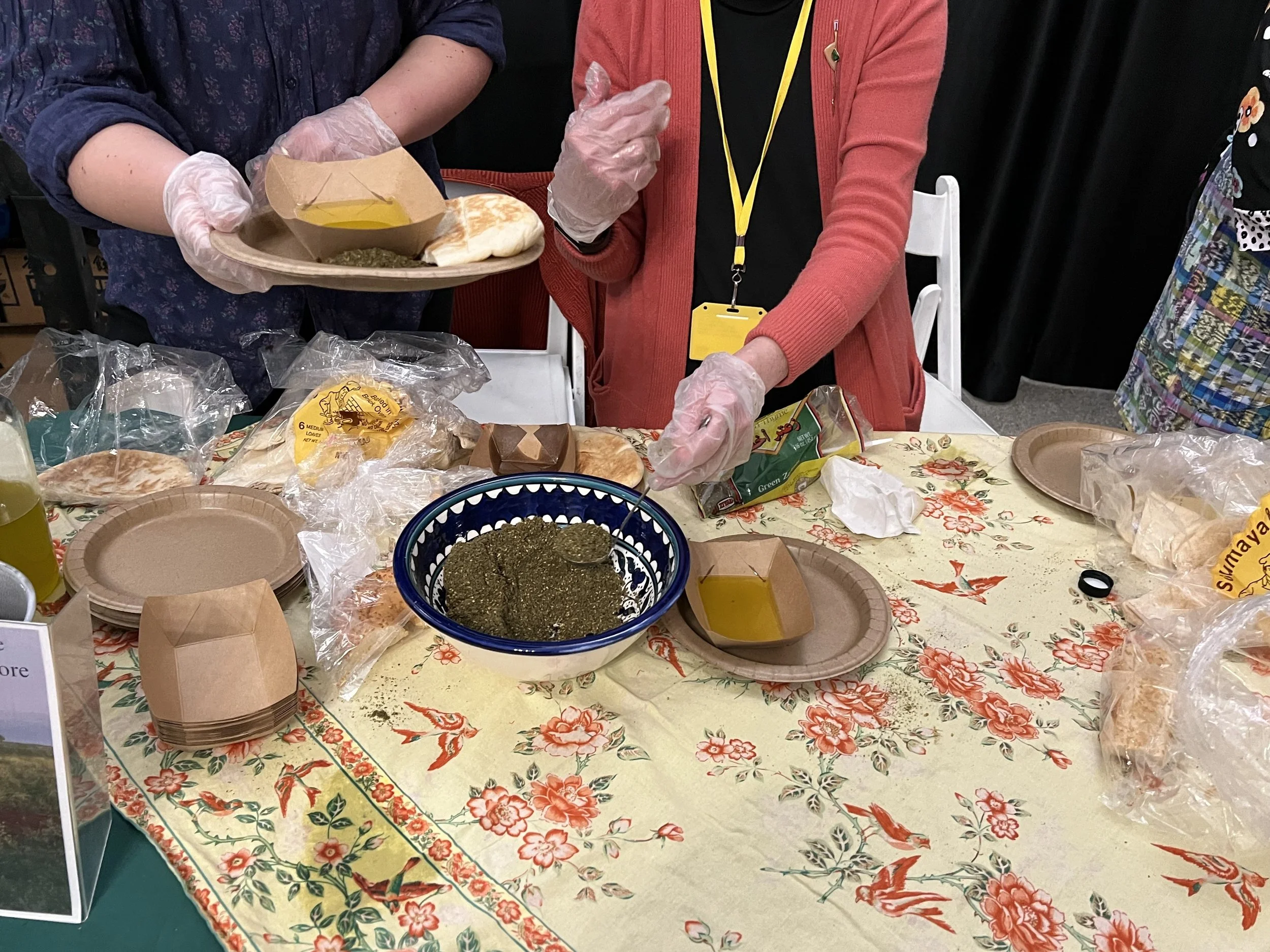Watching Jumana Manna’s Film “Foragers” to Commemorate Palestinian Land Day
Jennifer Hernandez
Philadelphians gathered at Penn Museum earlier this month to watch Foragers (64 min.), a film that tells the story of Palestinians whose centuries-old traditional practice of foraging for wild edible plants and herbs has been criminalized by Israel. Now through April 3rd, in commemoration of Palestinian Land Day (March 30th), the film is free to screen online courtesy of the Palestine Film Institute.
A frame from Jumana Manna’s film Foragers, in which two women prepare akkoub for a meal.
The film, directed by Palestinian filmmaker Jumana Manna, was shot in Arabic and Hebrew in the Golan Heights, the Galilee, and Jerusalem. It premiered at Visions du Réel in Switzerland in 2022 and screened at Toronto International Film Festival, IDFA in Amsterdam, and CPH:DOX in Copenhagen.
Palestinian visual artist and filmmaker Jumana Manna directed Foragers. She was raised in Jerusalem and lives in Berlin.
Foragers employs a combination of fiction, documentary, and archival footage to depict the impact of Israel’s nature protection laws on Palestinian foragers.
“For Palestinians, these laws constitute an ecological veil for legislation that further alienates them from their land while Israeli state representatives insist on their scientific expertise and duty to protect,” Manna explains on her website.
The film dramatizes scenes depicting Israeli authorities chasing Palestinians who are foraging for za’atar and akkoub. Akkoub, a prickly plant commonly found in Palestine and Lebanon, is known as ‘gundelia’ or tumble thistle. Za’atar, an herb whose Latin name is origanum syriacum, is commonly known as Bible hyssop and wild marjoram. These plants have been used as food and traditional medicine for centuries by Palestinians.
Foragers depicts Palestinians who’ve been charged with illegal foraging pleading their case in Israeli court.
A Palestinian man who is charged with illegal foraging stands before a judge in an Israeli court in a scene from Foragers. Courtesy: Jumana Manna
Israel’s Nature and Parks Authority claims that it outlawed akkoub foraging to protect and conserve the species. But in an interview with Al-Busan, Palestinian human rights attorney Rabea Eghbariah said that foragers pose no threat to the plants. Eghbariah was instrumental in decriminalizing the ban on foraging. In 2019, he worked with the Haifa-based Adalah Legal Center for Arab Minority Rights in Israel to demand that Israel lift its ban. He argued that the ban was not based on reliable facts and disproportionately harmed the Arab population.
In 2020, enforcement measures were eased, allowing foragers to collect up to five kilograms of akkoub, za’atar, and miramiyyeh (sage) for personal use without triggering criminal sanctions.
“The implementation of this new policy essentially decriminalized the act of foraging these plants, allowing for household usage without facing fines or criminal sanctions,” Eghbariah told Al- Bustan. “This is a significant step towards a positive change, and it came after the legal action we took at the Adalah Legal Center.”
Palestinian human rights attorney Rabea Eghbariah co-wrote the court hearing scenes in Foragers.
According to Eghbariah, who co-wrote the court hearing scenes in Foragers, the plants hold immense value beyond their culinary use. “These plants are essentially markers of Palestinian identity and culture,” he said.
Eghbariah says that the Israeli ban on foraging is part of a larger story about Palestinian dispossession from their land and the ongoing struggles faced by Palestinians. Za’atar, he says, represents “the steadfastness of connection to the land, of resistance, of the idea of refugeehood.”
The screening was followed by a reception during which tea, pita, za’atar, and olive oil were served. Photo Credit: Jennifer Hernandez
“Foragers captures the joy and knowledge embodied in these traditions alongside their resilience to the prohibitive law,” Manna writes on her site. “The film raises questions around the politics of extinction, namely who determines what is made extinct and what gets to live on.”
Al-Bustan spoke to filmgoers.
“My first thought was how powerful it was just to watch people forage,” said audience member Emilie Nichols of Philadelphia, who attended with husband, Peter Nichols. “The thing that I found really captivating about the foraging was the silence in which it was taking place,” Peter said, adding “You could hear all of the cutting and the rustling of the foliage.”
***
Jennifer Hernandez is a bilingual Dominican journalist. A Media Fellow at Al-Bustan, she holds a MA in Creative Writing and English from Southern New Hampshire University and a Modern Journalism Certificate from NYU. She has reported for AL DÍA, where she covered higher education and culture. A passionate bibliophile, she lives in Philadelphia.





